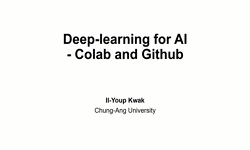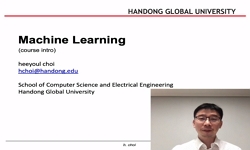One of the major challenges facing the realization of cognitive radios (CRs) in future mobile and wireless communicationsis the issue of high energy consumption. Since future network infrastructure will host real-time services requiring immediate sati...
http://chineseinput.net/에서 pinyin(병음)방식으로 중국어를 변환할 수 있습니다.
변환된 중국어를 복사하여 사용하시면 됩니다.
- 中文 을 입력하시려면 zhongwen을 입력하시고 space를누르시면됩니다.
- 北京 을 입력하시려면 beijing을 입력하시고 space를 누르시면 됩니다.



QoS Provisioning and Energy Saving Scheme for Distributed Cognitive Radio Networks Using Deep Learning
한글로보기https://www.riss.kr/link?id=A107280938
-
저자
Mduduzi Comfort Hlophe (University of Pretoria) ; Bodhaswar T. Maharaj (University of Pretoria)
- 발행기관
- 학술지명
- 권호사항
-
발행연도
2020
-
작성언어
English
- 주제어
-
등재정보
KCI등재,SCIE,SCOPUS
-
자료형태
학술저널
-
수록면
185-204(20쪽)
-
KCI 피인용횟수
0
- DOI식별코드
- 제공처
-
0
상세조회 -
0
다운로드
부가정보
다국어 초록 (Multilingual Abstract)
One of the major challenges facing the realization of cognitive radios (CRs) in future mobile and wireless communicationsis the issue of high energy consumption. Since future network infrastructure will host real-time services requiring immediate satisfaction, the issue of high energy consumption will hinder the fullrealization of CRs. This means that to offer the required qualityof service (QoS) in an energy-efficient manner, resource management strategies need to allow for effective trade-offs between QoSprovisioning and energy saving. To address this issue, this paperfocuses on single base station (BS) management, where resourceconsumption efficiency is obtained by solving a dynamic resourceallocation (RA) problem using bipartite matching. A deep learning(DL) predictive control scheme is used to predict the traffic loadfor better energy saving using a stacked auto-encoder (SAE). Considered here was a base station (BS) processor with both processorsharing (PS) and first-come-first-served (FCFS) sharing disciplinesunder quite general assumptions about the arrival and service processes. The workload arrivals are defined by a Markovian arrivalprocess while the service is general. The possible impatience of customers is taken into account in terms of the required delays. Inthis way, the BS processor is treated as a hybrid switching system that chooses a better packet scheduling scheme between meanslowdown (MS) FCFS and MS PS. The simulation results presentedin this paper indicate that the proposed predictive control schemeachieves better energy saving as the traffic load increases, and thatthe processing of workload using MS PS achieves substantially superior energy saving compared to MS FCFS.
참고문헌 (Reference)
1 E. J. Kitindi, "Wireless network virtualization with SDN and CRAN for 5G networks : Requirements, opportunities, and challenges" 5 : 19099-19155, 2017
2 Y. El Morabit, "Spectrum allocation using genetic algorithm in cognitive radio networks" 90-93, 2015
3 R. Doost, "Spectrum allocation and QoS provisioning framework for cognitive radio with heterogeneous service classes" 13 (13): 3938-3950, 2014
4 K. Hashimoto, "Self-triggered model predictive control for nonlinear input-affine dynamical systems via adaptive control samples selection" 62 (62): 177-189, 2017
5 M. Draoli, "Satisfying high quality requirements of videoconferencing on a packet switched network" 1997
6 M. S. Mushtaq, "Power saving model for mobile device and virtual base station in the 5G era" 1-6, 2017
7 W. C. Chan, "Pollaczek-Khinchin formula for the M/G/1 queue in discrete time with vacations" 144 (144): 222-226, 1997
8 M. J. Kaur, "Optimization of QoS parameters in cognitive radio using adaptive genetic algorithm" 4 (4): 1-15, 2012
9 M. C. Hlophe, "Optimization and learning in energy efficient resource allocation for cognitive radio networks" 1-5, 2019
10 X. Zhang, "Optimal trade-off between power saving and QoS provisioning for multicell cooperation networks" 20 (20): 90-96, 2013
1 E. J. Kitindi, "Wireless network virtualization with SDN and CRAN for 5G networks : Requirements, opportunities, and challenges" 5 : 19099-19155, 2017
2 Y. El Morabit, "Spectrum allocation using genetic algorithm in cognitive radio networks" 90-93, 2015
3 R. Doost, "Spectrum allocation and QoS provisioning framework for cognitive radio with heterogeneous service classes" 13 (13): 3938-3950, 2014
4 K. Hashimoto, "Self-triggered model predictive control for nonlinear input-affine dynamical systems via adaptive control samples selection" 62 (62): 177-189, 2017
5 M. Draoli, "Satisfying high quality requirements of videoconferencing on a packet switched network" 1997
6 M. S. Mushtaq, "Power saving model for mobile device and virtual base station in the 5G era" 1-6, 2017
7 W. C. Chan, "Pollaczek-Khinchin formula for the M/G/1 queue in discrete time with vacations" 144 (144): 222-226, 1997
8 M. J. Kaur, "Optimization of QoS parameters in cognitive radio using adaptive genetic algorithm" 4 (4): 1-15, 2012
9 M. C. Hlophe, "Optimization and learning in energy efficient resource allocation for cognitive radio networks" 1-5, 2019
10 X. Zhang, "Optimal trade-off between power saving and QoS provisioning for multicell cooperation networks" 20 (20): 90-96, 2013
11 B. Awoyemi, "Optimal resource allocation solutions for heterogeneous cognitive radio networks" 3 (3): 129-139, 2017
12 T. H. Nguyen, "Operating policies for energy efficient dynamic server allocation" 318 : 159-177, 2015
13 T. Dlamini, "Online supervisory control and resource management for energy harvesting BS sites empowered with computation capabilities" 2019 : 2019
14 L. Sboui, "On green cognitive radio cellular networks: Dynamic spectrum and operation management" 4 : 4046-4057, 2016
15 F. Kelly, "Notes on effective bandwidths" 4 : 141-168, 1996
16 N. N. Srinidhi, "Network optimizations in the internet of things : A review" 22 (22): 1-21, 2018
17 E. Bjornson, "Multiobjective signal processing optimization : The way to balance conflicting metrics in 5G systems" 31 (31): 14-23, 2014
18 J. Yang, "Location aided energy balancing strategy in green cellular networks" 1-6, 2014
19 S. V. Weijs, "Kullback-Leibler divergence as a forecast skill score with classic reliability-resolutionuncertainty decomposition" 138 (138): 3387-3399, 2010
20 "JORG Database"
21 R. Jejurikar, "Integrating processor slowdown and preemption threshold scheduling for energy efficiency in real time embedded systems" 2004
22 ITU-T, "ITU-T Recommendation G.114 One-way transmission time"
23 J. Dilley, "How much speed you need for online gaming"
24 G. Auer, "How much energy is needed to run a wireless network?" 18 (18): 40-49, 2011
25 P. Gandotra, "Green communication in next generation cellular networks : A survey" 5 : 11727-11758, 2017
26 S. Ping, "Green cellular access network operation through dynamic spectrum and traffic load management" 2791-2796, 2013
27 M. Alsharif, "Green and sustainable cellular base stations : An overview and future research directions" 10 (10): 1-27, 2017
28 S. Kim, "Game Theory:Breakthroughs in Research and Practice, Hershey, Pennsylvania" IGI Global 353-368, 2018
29 X. Tan, "Frequency allocation with artificial neural networks in cognitive radio system" 366-370, 2013
30 E. Caushaj, "Evaluating throughput and delay in 3G and 4G mobile architectures" 2 (2): 1-8, 2014
31 B. Nleya, "Enhanced congestion management for minimizing network performance degradation in OBS networks" 109 (109): 48-57, 2018
32 Z. Liu, "Energy-efficient resource allocation with QoS support in wireless body area networks" 1-6, 2015
33 R. Deng, "Energy-efficient cooperative spectrum sensing by optimal scheduling in sensor-aided cognitive radio networks" 61 (61): 716-725, 2012
34 U. Muhammad, "Energy-efficient channel hand-off for sensor network-assisted cognitive radio network" 15 (15): 18012-18039, 2015
35 T. Zhao, "Energy-delay trade-offs of virtual base stations with a computational resource-aware energy consumption model" 26-30, 2014
36 S. Tombaz, "Energy-and cost-efficient ultra high capacity wireless access" 18 (18): 18-24, 2011
37 D. Renga, "Energy management and base station on/off switching in green mobile networks for offering ancilliary services" 2 (2): 868-880, 2018
38 M. K. Hanawal, "Differential pricing of traffic in the internet" 1-8, 2018
39 Y. Hua, "Deep learning with long short-term memory for time series prediction" 57 (57): 114-119, 2019
40 E. Agrell, "Conditions for a monotonic channel capacity" 63 (63): 738-748, 2014
41 P. S. Aravind, "Bit error rate (BER) performance analysis of DASH7 protocol in Rayleigh fading channel" 695-698, 2018
42 M. Leconte, "Bipartite graph structures for efficient balancing of heterogeneous loads" 40 (40): 41-52, 2012
43 Y. H. Wang, "Applying a fuzzy-based dynamic channel allocation mechanism to cognitive radio networks" 564-569, 2017
44 M. W. Kang, "An efficient energy saving scheme for base stations in 5G networks with separated data and control planes using particle swarm optimization" 10 : 1-28, 2017
45 M. Hosseini, "Adaptive 360 VR video streaming:Divide and conquer" 107-110, 2016
46 G. Vallero, "Accounting for energy cost when designing energy-efficient wireless access networks" 11 (11): 1-21, 2018
47 G.Wang, "A traffic prediction based sleeping mechanism with low complexity in femtocell network" 560-565, 2013
48 L. Zhai, "A spectrum access based on quality-ofservice (QoS) in cognitive radio networks" 11 (11): 2016
49 H. Chen, "A quasi-infinite horizon nonlinear model predictive control scheme with guaranteed stability" 34 (34): 1205-1217, 1998
50 D. L. Nguyen, "A low-latency and energyefficient MAC protocol for cooperative wireless sensor networks" 3826-3831, 2013
51 B. Liu, "A long short-term traffic flow prediction method optimized by cluster computing"
52 S. Ahmed, "A cognitive radio-based energy-efficient system for power transmission line monitoring in smart grids" 2017 : 1-12, 2017
53 Yuan Zhao, "A Novel Spectrum Access Strategy with α-Retry Policy in Cognitive Radio Networks: A Queueing-Based Analysis" 한국통신학회 16 (16): 193-201, 2014
동일학술지(권/호) 다른 논문
-
Deep Learning-based Channel Estimation and Tracking for Millimeter-wave Vehicular Communications
- 한국통신학회
- 문상미
- 2020
- KCI등재,SCIE,SCOPUS
-
Collision Prediction for a Low Power Wide Area Network using Deep Learning Methods
- 한국통신학회
- Shengmin Cui
- 2020
- KCI등재,SCIE,SCOPUS
-
Accelerating Wireless Channel Autoencoders for Short Coherence-time Communications
- 한국통신학회
- Manuel Eugenio Morocho-Cayamcela
- 2020
- KCI등재,SCIE,SCOPUS
-
UE Throughput Guaranteed Small Cell ON/OFF Algorithm with Machine Learning
- 한국통신학회
- Tae-Yoon Park
- 2020
- KCI등재,SCIE,SCOPUS
분석정보
인용정보 인용지수 설명보기
학술지 이력
| 연월일 | 이력구분 | 이력상세 | 등재구분 |
|---|---|---|---|
| 2023 | 평가예정 | 해외DB학술지평가 신청대상 (해외등재 학술지 평가) | |
| 2020-01-01 | 평가 | 등재학술지 유지 (해외등재 학술지 평가) |  |
| 2005-01-01 | 평가 | SCI 등재 (등재후보1차) |  |
| 2004-01-01 | 평가 | 등재후보학술지 유지 (등재후보2차) |  |
| 2003-01-01 | 평가 | 등재후보 1차 PASS (등재후보1차) |  |
| 2001-07-01 | 평가 | 등재후보학술지 선정 (신규평가) |  |
학술지 인용정보
| 기준연도 | WOS-KCI 통합IF(2년) | KCIF(2년) | KCIF(3년) |
|---|---|---|---|
| 2016 | 0.74 | 0.09 | 0.53 |
| KCIF(4년) | KCIF(5년) | 중심성지수(3년) | 즉시성지수 |
| 0.42 | 0.34 | 0.264 | 0.02 |




 KCI
KCI






